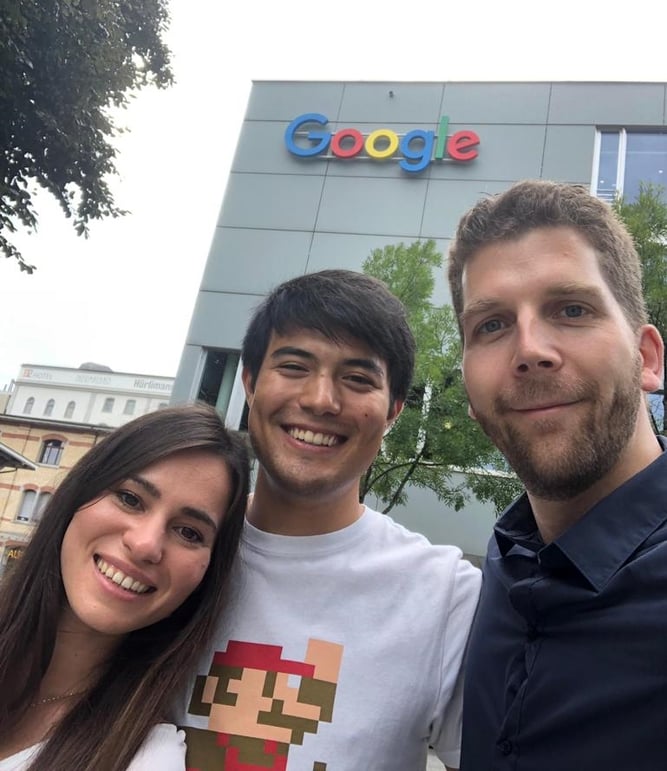We were recently invited by Google to hold a Tech Talk for Google engineers at their office in Zurich, their largest development office outside of Mountain View. After brainstorming, our AI team decided to present on topic extraction and creating expertise profiles.
Before we dive in, here's a quick quiz for you. It’s the same quiz we gave to the Google engineers in the presentation. The light bulb in the center is the person we are looking for and the tags around it are the topics that were extracted from political speeches. Can you guess which politician this expertise profile belongs to? Hint: It’s the expert profile of a famous US politician. (Solution at the end of the post!)
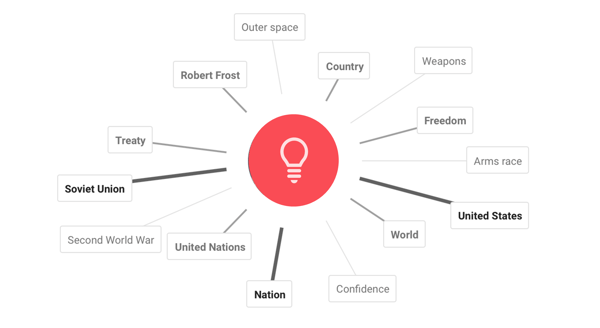
Now, let's dive into the Tech Talk: Why did we decide to give a presentation about the extraction of topics and the creation of expertise profiles? Because our approach of extracting the right information and building expert profiles differs fundamentally from Google. Therefore we could present a topic to the employees of Google that stands out from their daily business and is still relevant to them.
How are Starmind algorithms different from Google's algorithms? In short: while Google requires huge amounts of data, Starmind is able to produce phenomenal results even with small data.
There are many possible applications of Starmind algorithms in the business world. These are 3 of the main areas of use:
- Finding the right experts to answer a question
- Staffing of projects
- Creating a detailed skills inventory of the workforce
In the presentation we detailed how we achieve this. To keep it brief, we will show you some snippets from the presentation to give you a glimpse of what we do.
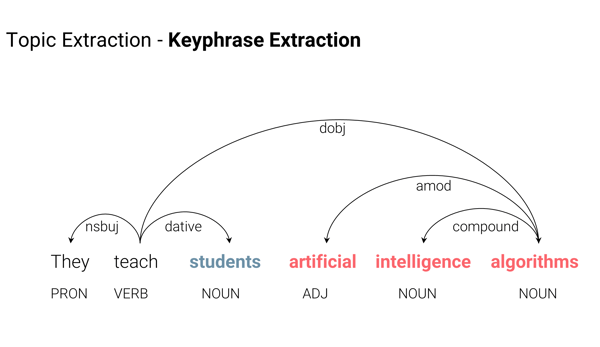
In this example you can see that nouns are high value words for topic extraction. Additionally, adjectives that are coupled with the relevant nouns are also of value for the topics that are extracted. Certain nouns however, such as students in this case are not relevant as a topic and therefore won't be extracted by the algorithm. In this case, the algorithm could extract artificial intelligence and algorithms as topics.
Then to assess expertise we use topic interactions. Take a look at this example:
Pascal (user) publishes an answer (action) about neuroscience, brain, and A.I (topics).
We do this by automatic detection of the topics a user interacts with from data sources such as…
… calendar entries
… emails
… public chat messages
… project descriptions
… questions and answers in Q&A tools
… support tickets and so on.
In the following example you can see a potential expert profile, created by the questions and answers that this person has given. For example these interactions...
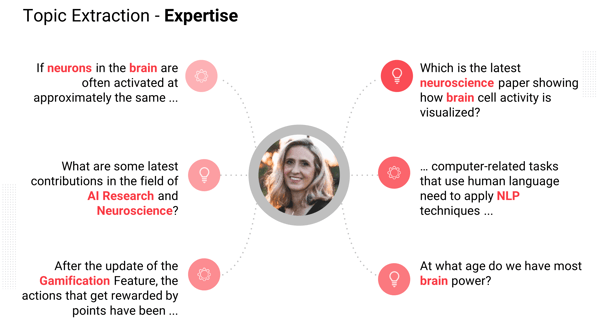
...lead to this expert profile.
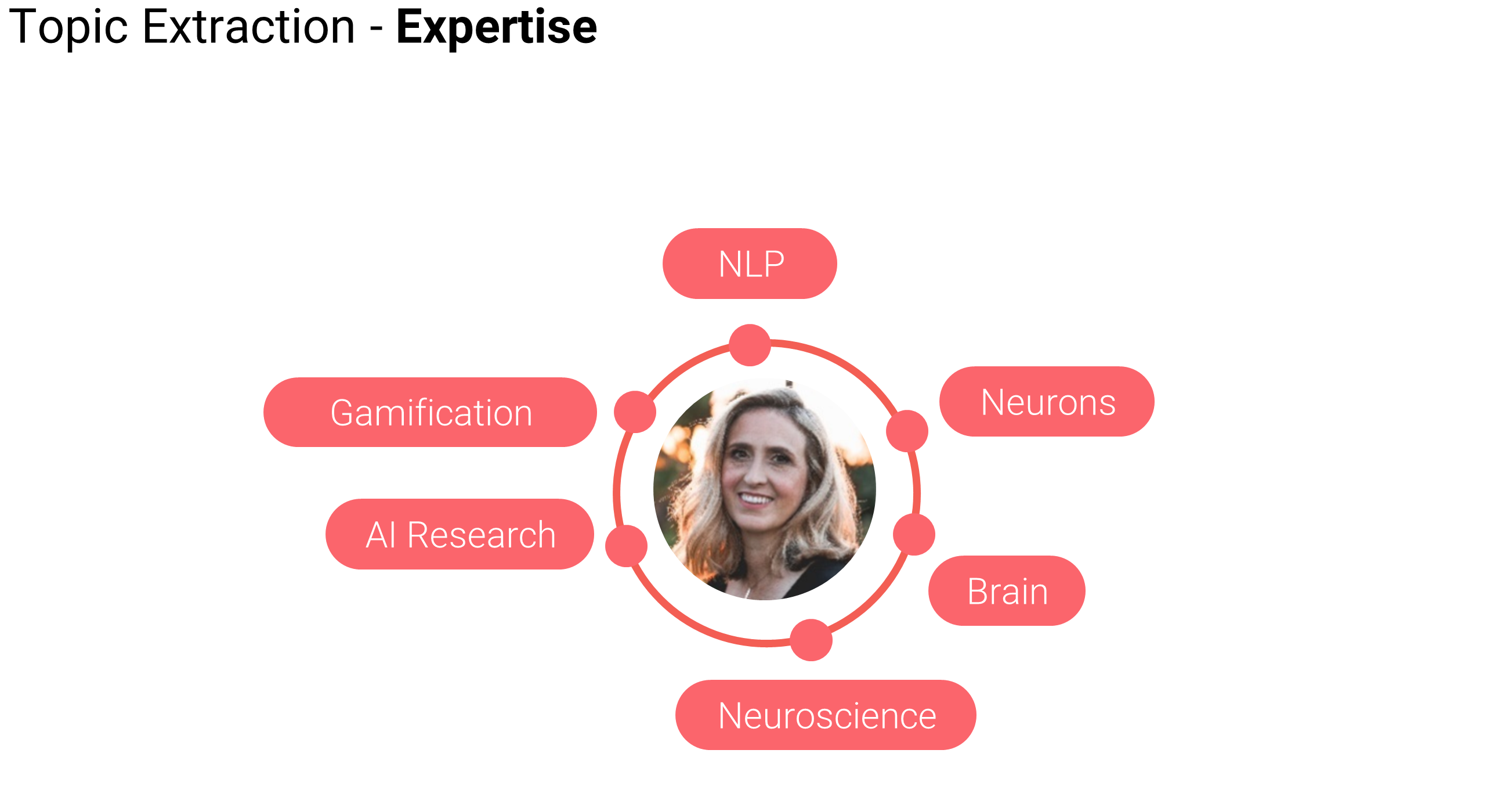
That's it! We hope you enjoyed the sneak peek of our presentation at Google. For us the main challenges are to extract the most relevant topics and create expert profiles that accurately reflect the knowledge of each person. We are constantly working to improve our algorithm even further.
We had a lot of fun presenting in front of an engaged and highly technical audience at Google. After the presentation, we answered questions on natural language processing, topic extraction, data security and many more subjects that led to interesting discussions. If you have a question about the underlying model of Starmind or how Starmind can be used in your organization, don’t hesitate to ask us! Just write an email to info@starmind.com and we’ll get back to you with all the answers you need.
Solution of the quiz:
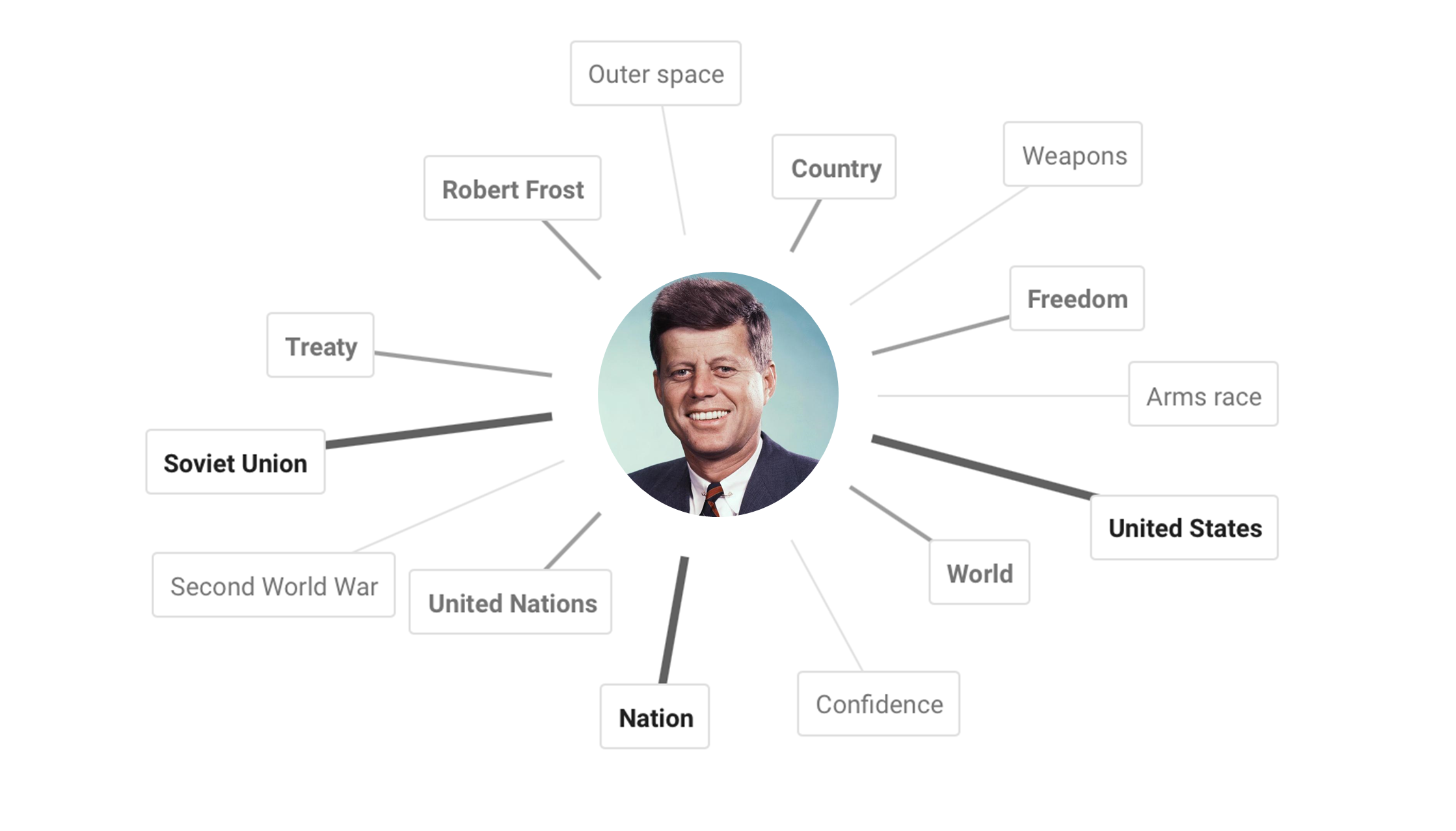
John Fitzgerald Kennedy, better known as JFK. Congratulations if you got it right!
Bonus picture: This is us after the successful presentation at the Google offices. From left to right: Laura Mascarell, Mario Curschellas, Joachim Ott.